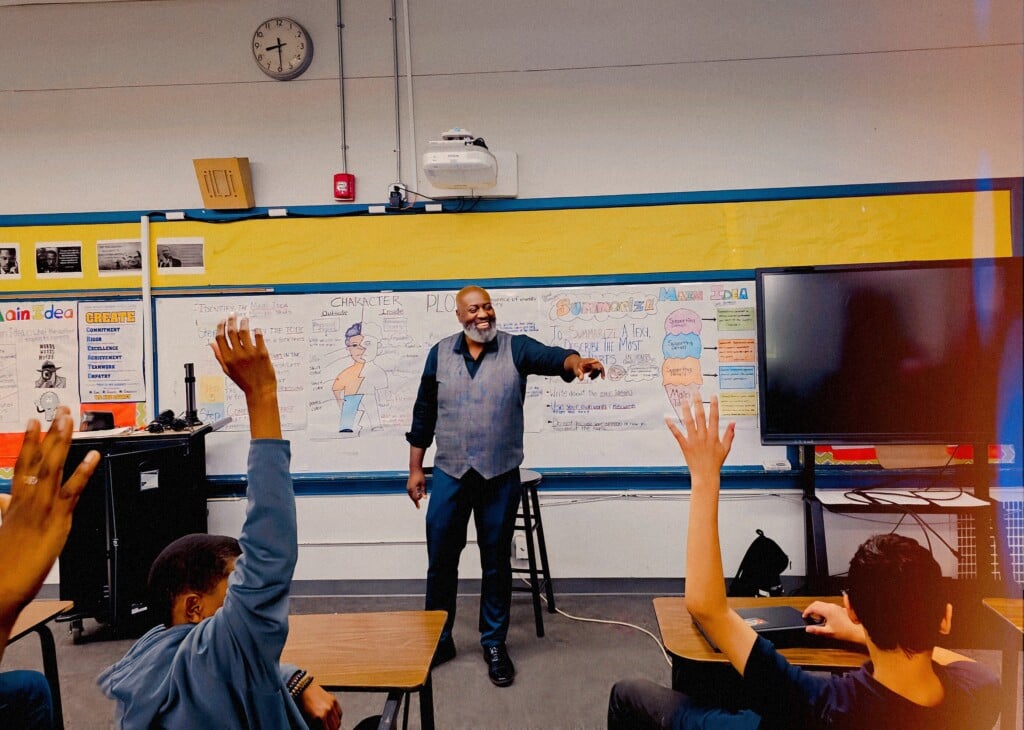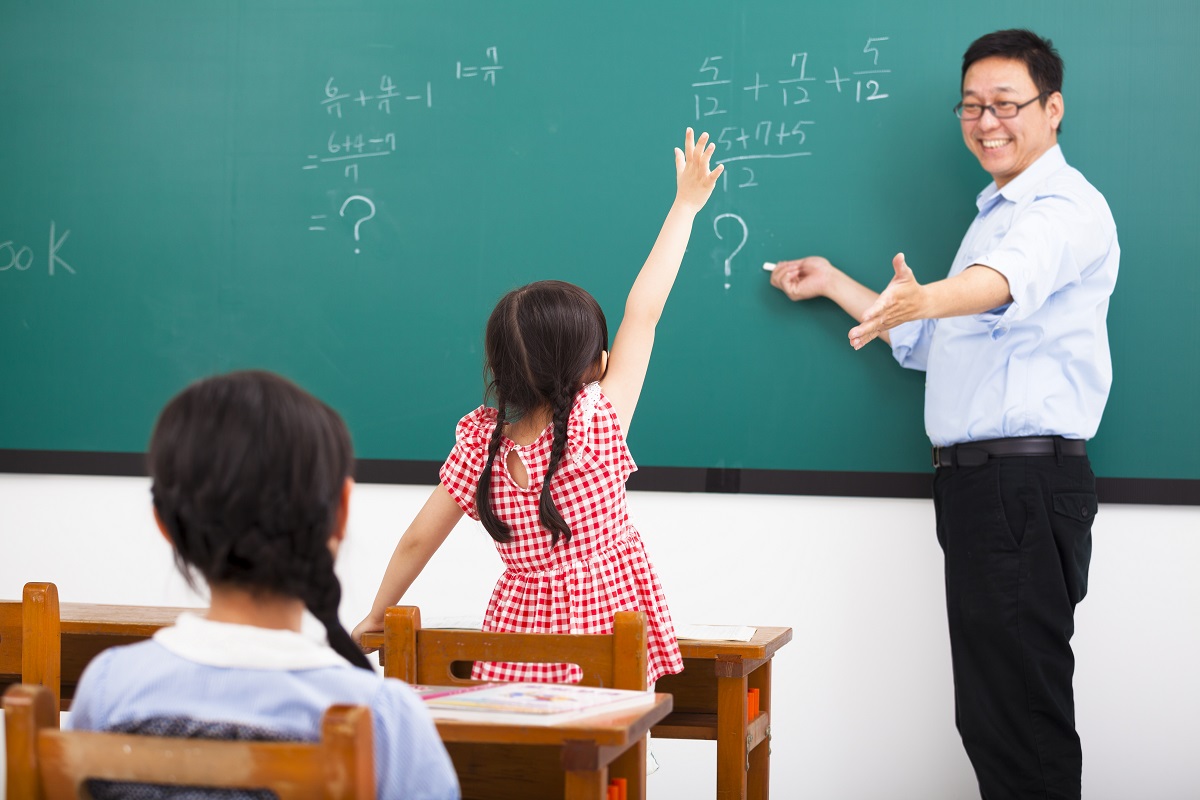Boost Your Child’s Confidence with Primary Science Tuition Singapore
Boost Your Child’s Confidence with Primary Science Tuition Singapore
Blog Article
Discover the Important Advantages of Understanding Main Scientific Research for Young Students
The significance of key science education for young students extends far past plain knowledge procurement; it serves as an essential column in creating vital abilities such as critical thinking, analytical, and creativity. Involving with scientific concepts with inquiry-based and interactive tasks not only cultivates interest however likewise prepares for resistant, certain students. As we explore these benefits even more, it comes to be clear that the implications for future academic and individual development are extensive. However, what details approaches can instructors use to make best use of these benefits?
Enhancing Important Believing Skills
Cultivating important believing abilities in young students is necessary for their cognitive development and future scholastic success. Important reasoning allows kids to analyze details, examine evidence, and make educated choices, which are vital abilities in today's information-rich culture. By involving in clinical query, young learners can improve these skills as they discover concepts with experimentation, reasoning, and monitoring.
In main scientific research education, teachers can facilitate critical reasoning by encouraging students to ask concerns, create hypotheses, and perform experiments. This hands-on approach enables youngsters to practice problem-solving and establish sensible thinking abilities. For example, when trainees check out the properties of materials or the principles of activity, they find out to assess their findings critically and draw final thoughts based upon proof.
In addition, discussions and collaborative projects can promote vital thinking by supplying chances for learners to verbalize their ideas, obstacle assumptions, and think about diverse point of views. By producing a helpful atmosphere that values inquiry and reflection, educators can nurture critical thinking skills that empower young students to come to be lifelong learners and independent thinkers. Ultimately, boosting these abilities lays a robust structure for their future academic endeavors and individual development.
Fostering Curiosity and Expedition

Main scientific research education gives a structured setting where young learners can discover different sensations via hands-on experiments and observations. By enabling them to connect with products and take part in inquiry-based discovering, teachers develop possibilities for children to create hypotheses, examine their ideas, and attract conclusions. Such experiences support a sense of marvel and enjoyment about scientific research.

Building Confidence in Issue Solving
Building confidence in analytic is a crucial component of main science education that equips young students to approach difficulties with strength and creative thinking - primary science tuition Singapore. They develop important skills in critical thinking and analysis when children are encouraged to involve with clinical ideas through hands-on tasks and inquiry-based knowing. This process not just enhances their understanding of clinical principles yet additionally fosters a sense of possession over their discovering
To build self-confidence, teachers ought to develop a helpful environment where errors are deemed possibilities for growth as opposed to failures. This motivates students to take dangers and discover different remedies to problems. By giving scaffolding and assistance, educators can assist pupils navigate complicated tasks, slowly raising their self-reliance in analytic circumstances.
Moreover, collaborative knowing experiences, such as group jobs or experiments, can even more improve pupils' self-confidence as they discover to express their ideas and pay attention to others' viewpoints. These communications support social abilities and strengthen the idea that analytical is commonly a cumulative endeavor. Ultimately, cultivating confidence in problem-solving prepares young learners for future scholastic obstacles and outfits them with the devices essential for lifelong discovering.
Motivating Creative Thinking and Technology
In the realm of primary science education, encouraging creativity and development is vital for growing a dynamic discovering setting. By cultivating a society where young learners can explore concepts and experiment openly, instructors assist trainees establish vital believing skills and an enthusiasm for exploration. Creativity in scientific research encourages children to ask concerns, develop theories, and participate in hands-on tasks that promote their imagination.
Integrating flexible projects and inquiry-based understanding into the educational program allows trainees to reveal their unique point of views and solutions. When entrusted with solving a problem associated to their setting, students can brainstorm several strategies, leading to inventive results that display their originality. This not only strengthens their understanding of clinical principles but likewise infuses a sense of possession over their discovering procedure.
Moreover, creative science education supports cooperation among peers, as trainees frequently share concepts and build on one an additional's understandings - primary science tuition Singapore. This collaborative spirit promotes not only advancement yet also vital social abilities. Hence, by prioritizing creativity and advancement in main scientific research education and learning, we encourage young students to think critically, embrace obstacles, and picture opportunities, laying a solid structure for lifelong knowing and exploration
Preparing for Future Learning Obstacles
Young students' capability to navigate future learning obstacles depends upon a solid foundation in primary scientific research education and learning. This foundational understanding gears up students with critical assuming abilities and an organized strategy to analytic, necessary for dealing with complex issues in an ever-evolving globe. Main science cultivates Bonuses inquiry-based understanding, urging trainees to ask inquiries, check out hypotheses, and take part in hands-on experiments.
As they develop these abilities, learners come to be proficient at assessing data, identifying patterns, and drawing notified conclusions. Such expertises are important not just in scientific fields however also in math, technology, and engineering (STEM), where interdisciplinary understanding is increasingly crucial.
Additionally, primary science education grows a feeling of curiosity and durability in young learners, allowing them to watch challenges as chances for development. As they run into and conquer challenges in their clinical expeditions, they construct confidence in their capability to introduce and adjust.
Ultimately, a solid structure in primary scientific research not just prepares young learners for scholastic searches but likewise outfits them with the tools required for lifelong discovering and adaptability in a rapidly altering worldwide landscape. By purchasing main scientific research education and learning, we are purchasing the future possibility of our learners.
Final Thought
Understanding primary science is important for young students, as it cultivates essential reasoning, curiosity, and imagination. Involving with clinical principles with hands-on experiments improves problem-solving capabilities and develops durability. This foundational expertise not only gears up students to assess information and identify patterns yet likewise nurtures an inquiry-based frame of mind. Ultimately, the benefits of key science education prepare youngsters for future scholastic searches and impart lifelong learning behaviors essential for growing in an ever-evolving globe.
The relevance of primary scientific research education and learning for young learners prolongs much beyond simple expertise purchase; it offers as an essential pillar in establishing important skills such as essential reasoning, problem-solving, and imagination. By developing an encouraging environment that values query and reflection, teachers can support essential thinking skills that empower young learners to end up being long-lasting students and independent thinkers. Thus, by prioritizing creativity and development in main scientific research education and learning, we encourage young students to assume seriously, welcome obstacles, and envision possibilities, laying a strong anchor foundation for long-lasting understanding and expedition.
Young students' capacity to browse future understanding obstacles pivots on a strong foundation in main wikipedia reference science education.Understanding key scientific research is crucial for young learners, as it fosters vital reasoning, curiosity, and creativity.
Report this page